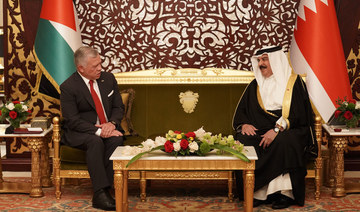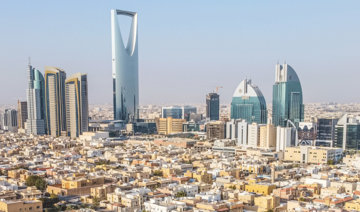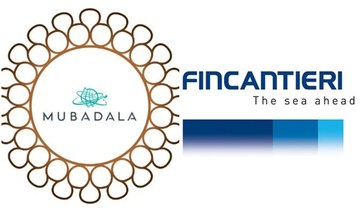SHANGHAI: A Chinese joint venture of German car maker BMW will recall more than 140,000 cars in the world’s largest auto market over power steering defects, China’s quality watchdog said.
BMW Brilliance Automotive will next month start recalling 143,215 5-series cars made in the three years from August 2009, the General Administration of Quality Supervision, Inspection and Quarantine of China said in a statement.
BMW Brilliance, a 50-50 joint venture with Brilliance China Automotive Holdings, will replace defective plugs on the vehicles that could cause safety hazards, the quality inspector said.
The planned recall comes after BMW in late July failed to get Chinese government approval for a 9.2 billion yuan ($1.5 billion) plant expansion scheme in the northern city of Shenyang.
In a statement posted on July 26, China’s environmental protection ministry said it had rejected a BMW Brilliance proposal to expand a production facility as it failed to pass environmental tests.
China became the world’s largest auto market in 2009.
Consulting firm McKinsey forecasts China’s passenger car market to grow an average of eight percent annually through to 2020, when sales will reach 22 million.
Foreign automakers have announced expansion plans in China to try to seize a bigger share of the market, as the country’s increasing wealth gives consumers more money to spend.
US automaker General Motors announced in June it would invest $11 billion in China through 2016, as it broke ground on a plant to produce luxury Cadillacs.
And in May German auto giant Volkswagen broke ground on a new plant in the central city of Changsha, due for completion at the end of 2015, with an annual output capacity of about 300,000 vehicles.
BMW China venture to recall 140,000 cars
BMW China venture to recall 140,000 cars
Saudi Arabia set to host UNCTAD Global Supply Chain Forum in 2026
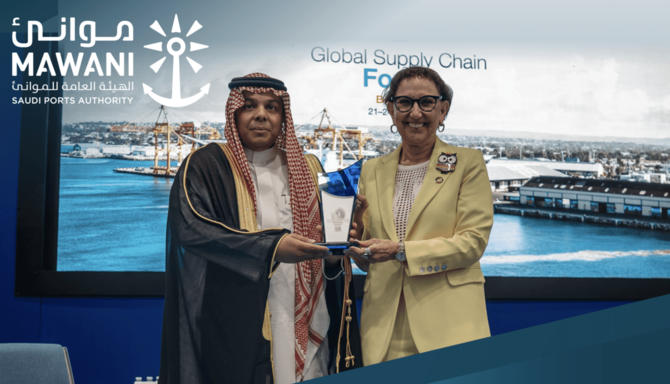
RIYADH: Saudi Arabia will host the UN Trade and Development Global Supply Chain Forum in 2026, reinforcing its growing status as a global logistics hub.
The international event will bring together leaders, experts, and organizations to shape the future of international trade.
The biannual event — the first edition of which is being held from May 21 to 24 in Bridgetown, Barbados — aims to serve as a platform for global dialogue, shaping the investment environment in line with the UN’s Sustainable Development Goals.
As per a statement from the Saudi Ports Authority, also known as Mawani, this accomplishment solidifies the Kingdom’s position as a key global logistics center and a pivotal point for connecting three continents.
Saleh bin Nasser Al-Jasser, minister of transport and logistics services and chairman of the authority, stated that hosting this event reflects Saudi Arabia’s prominent position on the global stage and its significant influence in international organizations.
He underscored the leadership’s commitment to supporting the transport and logistics sector to achieve developmental and service-oriented projects and initiatives, aligned with the ambitious goals of the National Transport and Logistics Strategy under Vision 2030.
Al-Jasser added that winning the bid to host the 2026 UNCTAD Global Supply Chain Forum is a testament to the remarkable efforts in the ports and supply chain sector.
It also mirrors the growth in operational capabilities and efficiency, as well as the substantial investments Mawani has made in developing infrastructure and maritime services in collaboration with the private sector, the release added.
The current situation involves incidents targeting commercial vessels in the Red Sea, disruptions to Suez Canal shipping, instability in the Black Sea due to the conflict in Ukraine, and drought-related water level reductions in the Panama Canal, impacting vital trade routes.
On another front, the increasing connectivity of Saudi ports with global counterparts, along with significant advancements in strategic partnerships with major international shipping lines, has led to the introduction of new maritime services linking the Kingdom with continents across the globe. This development is contributing to enhanced trade, exports, and global market connectivity.
Omar bin Talal Hariri, president of Mawani, highlighted that this accomplishment reflects the successful efforts in developing logistics service standards.
He added that the endeavor aids in supporting global trade, adopting innovative technologies in the maritime and logistics sector, and employing artificial intelligence to enhance services provided to beneficiaries.
These efforts contribute to ensuring a more inclusive and sustainable future for global supply chains.
Saudi-Jordanian mining, pharma ties to advance thanks to ministerial visit
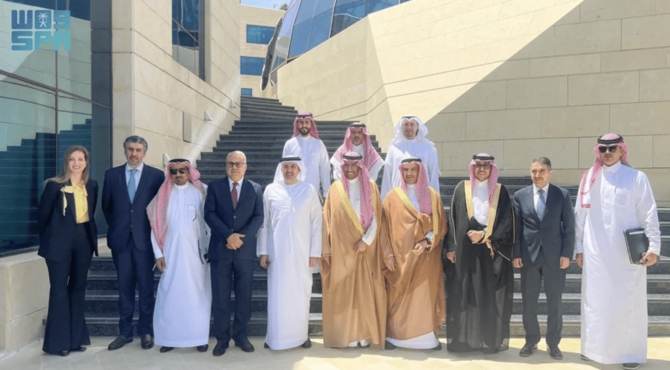
RIYADH: Mining and pharmaceutical cooperation between Saudi Arabia and Jordan is poised to advance after a top official’s visit to the Hashemite Kingdom.
Saudi Minister of Industry and Mineral Resources Bandar bin Ibrahim Alkhorayef met with the chairman of the Arab Mining Co., Mohammed Ahmed Al-Shehhi, during his trip, which commenced on May 21.
With a current focus on the advancements between nations, a Ministry of Industry and Mineral Resources statement highlighted that Saudi Arabia’s exports to Jordan in 2023 reached SR7.6 billion ($2 billion), while its imports from Jordan amounted to SR7.5 billion.
The release noted that the Kingdom’s exports to Jordan included food products, petrochemicals and polymers as well as construction materials.
Meanwhile, its imports from Jordan included commodities and medical drugs.
Saudi Arabia has previously introduced several investment opportunities in vaccines and biologics totaling $3.4 billion. This initiative aligns with the Kingdom’s efforts to ensure the consistent availability of pharmaceutical products, aiming to meet its healthcare demands while establishing itself as a significant drug supply hub.
Forging mining ties
During the minister’s visit, Alkhorayef and Al-Shehhi discussed ways of enhancing cooperation in the mining sector in the presence of Khalid bin Saleh Al-Mudaifer, the vice minister of mining affairs. They also explored opportunities to leverage the mining resources available in Saudi Arabia and Jordan, according to the Saudi Press Agency.
In a post on his X account, the minister said that he discussed with several officials in Jordanian mining companies the prospects for joint cooperation to develop the mining sector in the region and to benefit from the large mineral resources in both countries, especially in a number of strategic and rare minerals.
He also spoke of attracting qualitative investments in this vital sector and held meetings with officials from Jordanian companies operating in the mining sector.
In his discussions with representatives from Jordan Phosphate Mines Co., a publicly traded company established in 1949, both parties explored potential collaboration opportunities in extracting and producing phosphorus compounds, considering Saudi Arabia’s significant reserves.
Additionally, the minister touched on cooperation with officials from the Arab Potash Co., the eighth-largest potash producer worldwide by volume of production and the sole producer of this product in the Arab World.
The two sides reviewed the progress made in implementing the memorandum of understanding signed between the company and the Saudi Arabian Mining Co., also known as Ma’aden, aiming to enhance collaboration in specialized fertilizers and products in both nations.
Injecting pharmaceutical cooperation
Alkhorayef also met the chairman of the Jordanian Association of Pharmaceutical Manufacturers, Tareq Darwazeh, while in Amman.
The two explored avenues to enhance cooperation in pharmaceutical manufacturing and marketing, aiming to leverage the advanced expertise and capabilities of both countries.
Moreover, Alkhorayef visited several Jordanian pharmaceutical factories and companies, where he held meetings with their senior officials.
“I gained insight into their operational plans and engaged in discussions with their senior officials regarding opportunities to strengthen cooperation. We also explored avenues for exchanging experiences in localizing the vital and specialized pharmaceutical industry, as well as attracting investments in this crucial sector,” he said in a post on X.
The minister visited MS Pharma’s sterile injectables factory in the Sahab area and toured Hikma Pharmaceuticals, including its factory in Al-Bayader.
During the visit, he attended a virtual presentation highlighting the company’s facilities in Portugal and the US, which specialize in the production of oncology drugs and injections.
He also visited the Saudi embassy in Amman, where he met with various Jordanian investors and businesspeople.
During these meetings, they discussed opportunities for cooperation in trade and investments, focusing on the mining and industry sectors.
The visits underscore the Kingdom’s commitment to attracting qualitative investments in the pharmaceutical and healthcare sectors while facilitating exports to international markets.
During his visit, Alkhorayef is scheduled to meet with Jordan’s Prime Minister Bisher Al-Khasawneh, as well as the Minister of Industry, Trade, and Supply, Yousef Mahmoud Al-Shamali, and the Minister of Energy and Mineral Resources, Saleh Al-Kharabsheh.
According to SPA, the Saudi minister will also meet with the Minister of Investment, Khuloud Al-Saqqaf, along with several investors and heads of private sector companies.
Saudi Arabia’s proptech investments surge 35% to $9m: MAGNiTT report

CAIRO: Property technology venture capital investments in Saudi Arabia saw an annual increase of 35 percent in 2023 to reach $9 million, according to MAGNiTT’s latest report.
The venture data platform emphasized that the Kingdom outpaced Africa, the Middle East, Pakistan, Turkiye, and Southeast Asia regions with six proptech deals last year.
In funding amount, Saudi Arabia ranked fifth across all markets, with Indonesia leading with $54 million, followed by the UAE with $35 million, and South Africa and Singapore with $13 million and $11 million, respectively.
In terms of deal count, the UAE followed the Kingdom with five deals, while Indonesia, South Africa, and Turkiye each had three.
Total funding across all markets in 2023 amounted to $157 million, marking an 81 percent decrease compared to the previous year.
Deal count also experienced a significant annual decline, reaching 34 transactions, reflecting a 40 percent fall compared to 2022.
MAGNiTT’s Emerging Venture Markets Real Estate report focused on analyzing the property marketplace, co-working, tenancy management, and facility management subsectors.
The property marketplace was the leading sub-industry, attracting $120 million in funding, though this represented an 83 percent decline compared to the previous year.
Africa was the best-performing region, with a 10 percent annual increase in funding, reaching $22 million.
Property management was the most funded subsector on the continent, receiving $18 million in 2023, reflecting a 6 percent annual growth.
In terms of deal count, Africa experienced a 53 percent drop, totaling seven transactions for the year.
In the MEPT region, $59 million in funding was deployed in 2023, marking a 78 percent year-on-year decrease.
This was spread across 19 deals, with the property marketplace being the most funded subsector at $38 million and the most transacted with 11 investments.
Notably, seven out of the 10 most active investors by capital deployed in the region are headquartered in the US.
Founded in 2015, MAGNiTT is the largest venture capital data platform in the Middle East, Africa, Pakistan, Turkiye, and Southeast Asia, with a database of over 32,000 startups and 11,000 investment firms.
Italy’s Fincantieri launches Saudi shipbuilding unit to strengthen collaboration
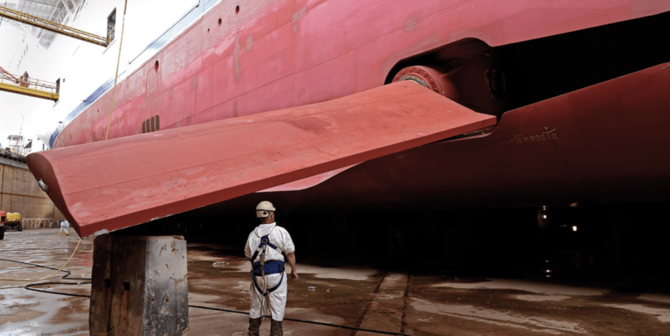
RIYADH: Italian shipbuilder Fincantieri plans to enhance collaboration with Saudi Arabia through a newly established unit, the company said.
Fincantieri Arabia will bolster the Kingdom’s Vision 2030 development agenda in the cruise, defense, and offshore sectors, the group disclosed in a press release, issued on the sidelines of an industrial conference in Riyadh.
Fincantieri is the only shipbuilding group active in all high-tech marine industry sectors, the release added.
The new unit aims to highlight the group’s wide-ranging capabilities in shipbuilding, maritime equipment and systems, and naval logistic support services, including training and simulation.
It will also manage stakeholder relationships in the Kingdom and seek out local partners.
Moreover, Fincantieri said it plans to share its technological expertise in shipbuilding across cruise, defense, and offshore sectors, thus opening up opportunities for Saudi nationals.
The firm’s CEO Pierroberto Folgiero: “Our commitment to the Kingdom of Saudi Arabia is steadfast. Fincantieri stands out in the shipbuilding industry for its vertically integrated model and our leadership across naval, cruise, and oil and gas sectors. We are proud to offer these world-class capabilities built on decades of naval heritage and excellence to help the Kingdom achieve its Vision 2030 objectives.”
He added: “Given the maritime industry’s pivotal role under Vision 2030, we eagerly anticipate establishing strategic partnerships. Through these collaborations, we aim to enhance local technological capabilities, create opportunities for Saudi talent, and foster knowledge exchange.”
The state-controlled Fincantieri has expanded its presence in the Middle East in recent years. In March 2023, Folgiero stated that the group would venture into the Saudi market and was strategically positioned for growth in the region.
The Italian group is also aiming to enhance its focus on defense, a sector that presently contributes to around a quarter of its revenues.
On May 20, Fincantieri concluded a shipbuilding joint venture, named Maestral, with Abu Dhabi-based EDGE Group. The two entities announced the signing of a €400 million ($433 million) contract with the UAE’s Coast Guard Forces for the supply of 10 advanced 51-meter offshore patrol vessels.
Lebanon’s reforms insufficient for recovery, IMF says
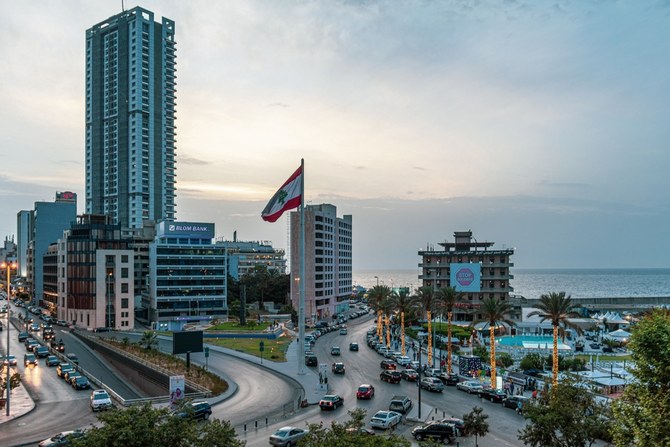
Lebanon’s economic reforms are insufficient to help lift the country out of its economic crisis, the International Monetary Fund said on Thursday.
Ernesto Ramirez Rigo, the head of the IMF mission visiting Lebanon, said in a statement that Lebanon’s ongoing refugee crisis, fighting with Israel at its Southern border and the spillover from the war in Gaza are exacerbating an already dire economic situation.
Israeli forces and Lebanon’s Hezbollah have traded fire across Lebanon’s southern border since the war in Gaza broke out in October last year.
Israel launched its assault on Gaza following a Hamas-led attack on southern Israeli communities on Oct. 7 in which fighters killed 1,200 people and captured more than 250 hostages.
Since then, Israel’s assault has killed more than 35,000 people, with thousands more feared buried under the rubble, according to Gaza health authorities.
The conflict “has internally displaced a significant number of people and caused damage to infrastructure, agriculture, and trade in southern Lebanon. Together with a decline in tourism, the high risks associated with the conflict create significant uncertainty to the economic outlook,” Rigo said.
Fiscal and monetary reforms carried out by Lebanon’s finance ministry and the central bank, including steps to unify multiple exchange rates for the Lebanese pound and contain a currency slump, have helped reduce inflationary pressure, according to Rigo.
However, he said more needs to be done if Lebanon is to alleviate its financial crisis.
“These policy measures fall short of what is needed to enable a recovery from the crisis. Bank deposits remain frozen, and the banking sector is unable to provide credit to the economy, as the government and parliament have been unable to find a solution to the banking crisis,” he added.
“Addressing the banks’ losses while protecting depositors to the maximum extent possible and limiting recourse to scarce public resources in a credible and financially viable manner is indispensable to lay the foundation for economic recovery.”
Since Lebanon’s economy began to unravel in 2019, its currency has lost around 95 percent of its value, banks have locked most depositors out of their savings and more than 80 percent of the population has sunk below the poverty line.
The crisis erupted after decades of profligate spending and corruption among the ruling elite, some of whom led banks that lent heavily to the state.
The government estimates losses in the financial system total more than $70 billion, the majority of which were accrued at the central bank.



